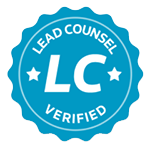Workers in a variety of different professions can end up hurt due to their work. Employees can break bones, hurt their brains or suffer soft tissue injuries when they have an accident on the job. They could also struggle with functional limitations caused by a medical condition caused by their employment, such as a back injury due to overexertion or a repetitive motion disorder.
Those in need of workers’ compensation benefits often have questions about their eligibility. For example, they may wonder when they become eligible for benefits.
Coverage starts on day one of employment
Workers can easily get hurt on the job when they haven’t yet gotten used to the facilities or received adequate training on how to perform their jobs safely. While some benefits are only available after a worker remains employed for several months, that isn’t the case for workers’ compensation. Technically, there should be coverage protecting an employee from their very first day of work. They can potentially file a claim against that coverage if they get hurt on the job. When can they start receiving medical coverage and disability benefits?
Benefits can start immediately
In most cases, workers can immediately be eligible for workers’ compensation benefits. So long as there is a clear connection between their employment and their condition and they fulfill state reporting requirements, they could have medical coverage beginning the same day they suffered an injury. Even if someone hasn’t yet had an opportunity to report the matter to an employer because they need emergency care for their injuries, workers’ compensation could potentially still cover their medical expenses.
Disability benefits are only available after someone misses seven days of work. Still, disability benefits can also be available from the first day that someone misses work if they remain away from the job for 21 days or more. Those benefits may continue to provide someone with support until they recover and return to their job. Other times, workers may need ongoing support and may need to convert temporary benefits to permanent ones.
Employees who understand the rules that apply to workers’ compensation benefits may find it easier to file a claim. Learning about Virginia’s requirements for injured employees can help people secure the support that they require – and rightfully deserve – to address a job-related health issue.



